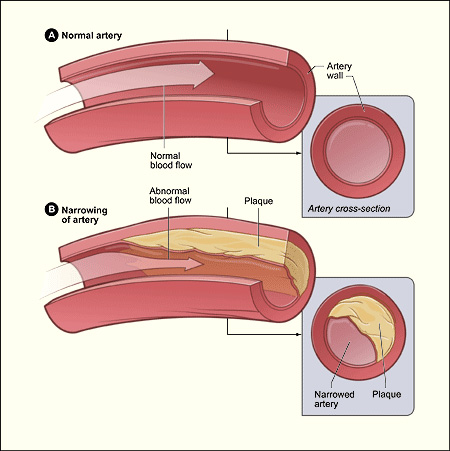


Joseph R. Anticaglia MD
Medical Advisory Board
“There is a very strong link between erectile dysfunction (ED)and heart disease. Having ED is as much a risk factor for heart disease as a history of smoking or a family history of coronary artery disease,” says the Cleveland Clinic.
Studies have shown a 25% increased risk for heart attacks, strokes, angina, or mini-strokes in patients who initially seek help for ED. Also, a sizable number of these patients had undiagnosed hypertension and diabetes, according to the American Urology Association. Erectile Dysfunction is a warning sign of cardiovascular and metabolic problems. What is ED?
Erectile dysfunction is the inability to attain and maintain an erection sufficient for satisfactory sexual intercourse. It is estimated that 20 to 30 million men in America have been diagnosed with this condition. Failure to achieve an erection more than 50% of the time indicates a problem that requires evaluation and treatment.
Psychological and/or physical problems cause ED. To attain an erection there must be a proper stimulus from the brain; and the nerves and blood supply to the penis must be adequate. If any of these factors are missing, there will be an insufficient blood flow to the penis, and a man will not achieve a firm erection.
| Category | Disorders | Problem |
|---|---|---|
| Psychogenic | Performance anxiety, Depression, Other psychiatric conditions | Loss of libido, over-inhibition, Impaired nitric oxide release |
| Neurogenic | Stroke, Spinal cord injury, Diabetic retinopathy | Lack of nerve impulse, or Interrupted transmission |
| Hormonal | Hypogonadism, Hyperprolactinoma | Inadequate nitric oxide release |
| Vasculogenic (arterial or venous) | Atherosclerosis, Hypertension | Impaired arterial or venous flow |
| Medication-induced | Antihypertensives, Antidepressants, Alcohol, Tobacco use | Central suppression, Vascular insufficiency |
American Urology Association, Erectile Dysfunction — Medical Student Curriculum
Metabolic syndrome: (high cholesterol, high blood sugar, high blood pressure, obesity). About 42% of men with diabetes experience ED (statistics vary).
Vascular diseases (atherosclerosis (blocked blood vessels), hypertension) account for seven out of ten cases of physical-related cases of erectile dysfunction in men over 60 years of age
Neurological diseases that interrupt the conduction of nerve impulses between the brain and the penis can lead to ED. For example, conditions such as injury to the spinal cord, stroke, Alzheimer’s disease, Parkinson’s disease, multiple sclerosis (MS) cause men to experience ED.
Kidney disease can cause chemical changes that lower libido (sex drive).
Psychological issues:(anxiety, depression real, stress)
Smoking
Excessive alcohol use
Traumatic injuries to the region, such as a fractured pelvis, radiation treatment for prostate cancer
Prescription Drugs, for example, blood pressure medications
is the buildup of cholesterol plaques on the inner walls of arteries causing obstruction to blood flow. It accounts for approximately 55% of physical-related cases of erectile dysfunction in men over the age of sixty.
Just as the coronary arteries can become blocked due to plaque formation, so too can the common penile artery become blocked due to plaque formation. The obstruction causes a decrease in blood flow to the penis which can lead to ED. Researchers report that erectile dysfunction signals the need to investigate the possibility of atherosclerosis, and medical conditions in other parts of the body.

An in-depth medical history (medical, surgical, social, and psychological), physical examination, and appropriate laboratory test are required to make an accurate diagnosis. Three useful laboratory tests are:
Three Tests
Treatment
We’ve heard it before about a healthy lifestyle, but it bears repeating because in the long run you’ll be healthier for exercising regularly, eating a healthy diet, maintaining a normal weight, not smoking, enjoying a happy relationship, being active in your community, minimizing stress, using alcohol in moderation and getting a good night’s sleep.
Medications such as sildenafil (Viagra), vardenafil (Levitra), and tadalafil (Cialis) work by inhibiting the action of the enzyme PDE5 Nitrous oxide is needed for the muscles in the penis to relax. These drugs enhance the presence of nitrous oxide in the penis allowing smooth muscles to relax and increase the blood flow to the penis. For procedure options consult your urologist.
If emotional or psychological issues are affecting your ED, talk to your doctor about you and your partner seeking the advice of a counselor.
Erectile dysfunction is not just a sexual disease. It can be a precursor to future problems. As noted, ED is as much a risk factor for heart disease as a history of smoking. If risk factors are identified, they should be worked-up and treated promptly.
This article is intended solely as a learning experience. Please consult your physician for diagnostic and treatment options.